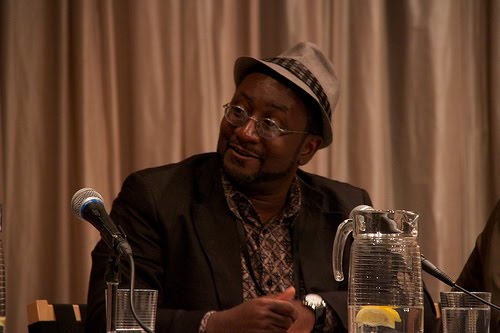Q: Do you know anything about Black Jack? I noticed that there wasn't much about Black Jack in your novel ALL OR NOTHING. I have recently started playing and I was wondering if there is a reason the dealer wins so much. Have you noticed that she hits the great numbers 19, 20, 21 and beats you with them so often that it looks like she is cheating? Do you think they are cheating? I have lost about $2000 so far and I am thinking about giving up the game. I can't seem to win a hand, even the goood hands.
A: Yes, Texas Hold'em is very dear to the protagonist's heart in my novel, but Black Jack, if you recall, is the downfall of his girlfriend C.L. That is the game she cheats at to get thrown out of Las Vegas.
I am no expert on Black Jack, but I have played it enough to know what you are talking about--the dealer's uncanny ability to draw 19, 20, and 21--just when you get a really good hand like a 19 or 20 or 21, creating an unsatisfying "push" or worse yet, a loss, or your part.
But actually, there is a mathematical reason for this tendency to hit great hands on the dealer's part.
What a lot of newcomers to the Black Jack game do not immediately realize is that the Black Jack deck is over-stacked with 10s. Ten is the most commmon card in the deck. In the deck there are more 10s than any other card. What am I talking about?
Take 6, for example. There are 4 sixes per deck: six of diamonds, six of clubs, six of hearts, six of spades. Therefore if the dealer needs a six to beat you, she is unlikely to get it because sixes are rare; or, looked at this way, she only has a one in 52 chance, roughly, of getting it because there are only four of them in the deck.
How many 10s are there in the deck? Answer: 16!
Yes, 16.
See, there are four 10s, four Jacks (counted as 10 points), four queens (counted as 10 points), and four kings counted as 10 points).
So there are 16 chances out of 52 for the dealer who needs a ten to get it.
This also means that when the dealer is showing an ACE, that there is about a little over 30% chance (one in three) that her other card is a ten, a black jack, perfect 21, and that she will beat you.
It follows then, that the dealer showing a 10, likely has another 10 hidden and she may beat you with 20.
And the dealer showing a 9, likely has a hidden 10, which will be a great hand with 19.
And the dealer showing an 8, likely has a hidden 10, which will be an 18.
And so on.
Black Jack is a great game, the only game in the casino that gives the player a slight edge over the house. But if you play it, expect your GOOD hand to be beaten time and again (at least 1 out of 3 times) by the dealer's GREAT hand.
Getting beat like that is just part of the game.
Thanks,
Preston

No comments:
Post a Comment